Who’s Afraid of Virginia Woolf? (1966)
“A drowning man takes down those nearest.”
|
Synopsis: |
|
Genres, Themes, Actors, and Directors:
Review: In Peary’s Alternate Oscars — where he reluctantly gives Taylor the award as well — he writes that while “Taylor doesn’t come across as being natural or at ease,” we should “at least give her credit for attempting to act rather than just inhabit a character”. While he complains that her portrayal of Martha is “too shrill” and “should appear to be strong for most of the play/film, rather than just loud and irritating”, he concedes that “when it really counts Taylor makes us understand this troubled woman.” I’m not bothered at all by Taylor’s performance, and find it difficult (though not impossible) to imagine someone else in the role — primarily due to the casting of Taylor’s real-life husband as her spouse. Speaking of Burton, Peary also awards him an Oscar, noting that Taylor’s “performance is so ostentatious… that it takes a while to realize that the comparatively subdued Burton is giving a brilliant characterization”. He adds that “we are transfixed by [Burton’s] every movement, dazed by his wise yet not always logical remarks, kept off balance by his secretive smiles and powerful gazes, knocked backward by his every shout.” He goes on to provide an analysis of George and Martha’s relationship — one which helps put all the shouting and manipulation into context:
Who’s Afraid of Virginia Woolf? isn’t an easy or pleasant film to watch by any means. However, Nichols’ confident direction, Haskell Wexler’s Oscar-winning b&w cinematography, and the memorable performances (including those by Segal and the oh-so-unique Dennis) make it well worth at least one visit. Be sure to check out the commentary on the DVD in which Nichols chats with Steven Soderbergh about his directorial choices and the film’s production history; it’s quite fascinating and insightful. Redeeming Qualities and Moments:
Must See? Categories (Listed in 1001 Movies You Must See Before You Die) Links: |
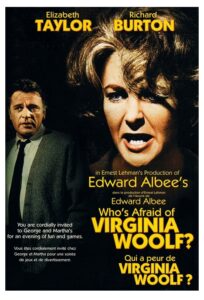
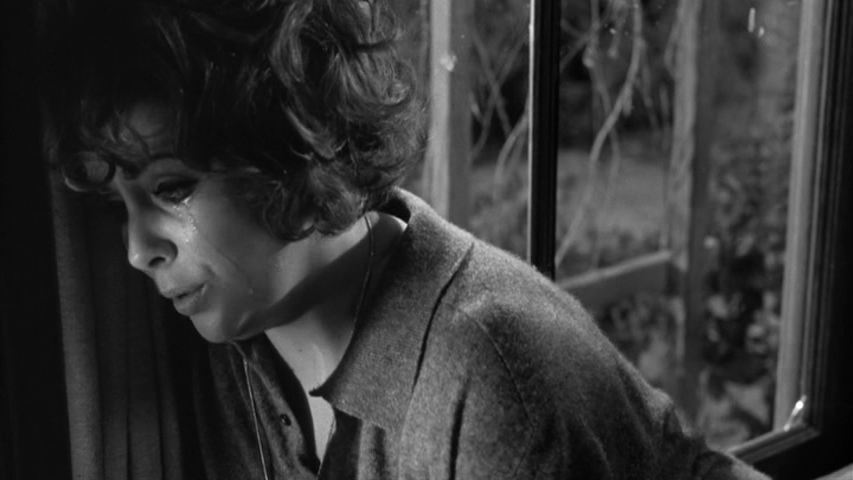
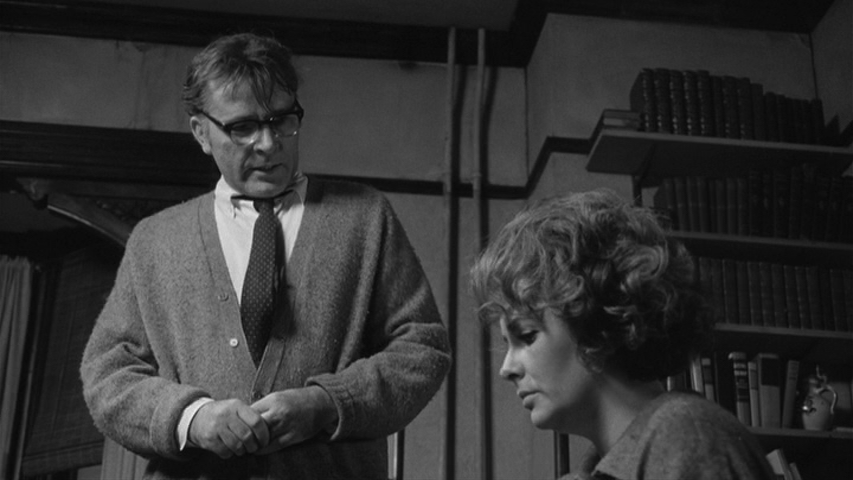
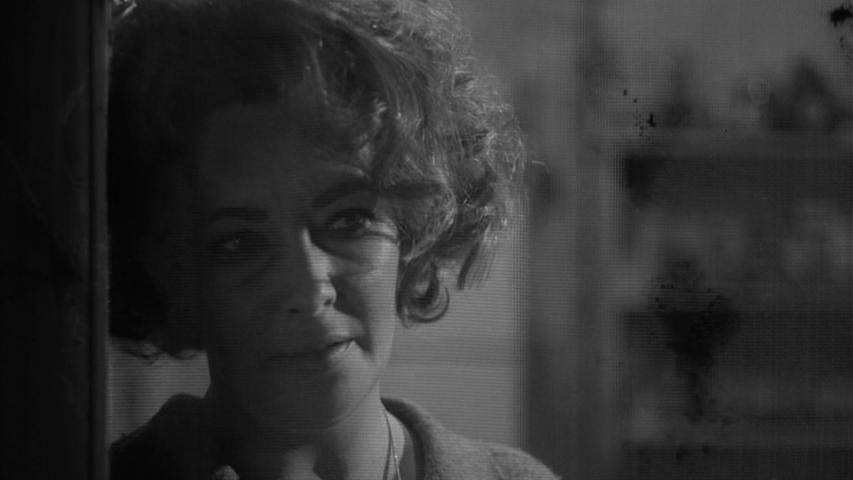
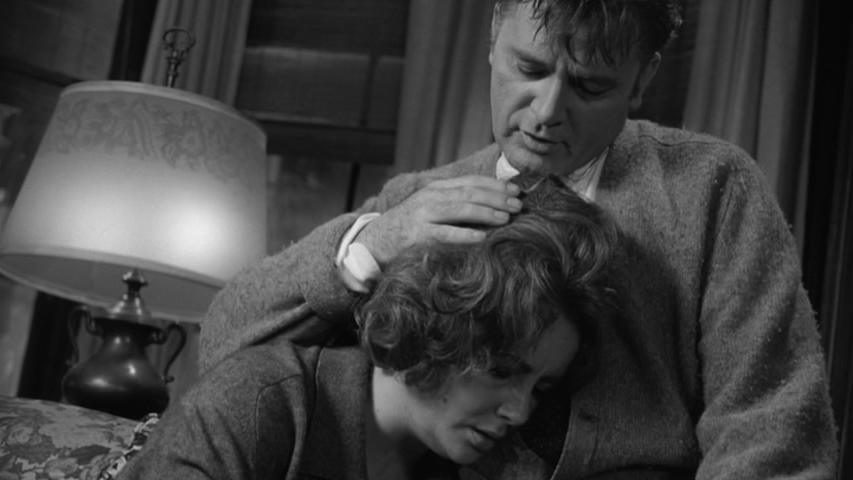

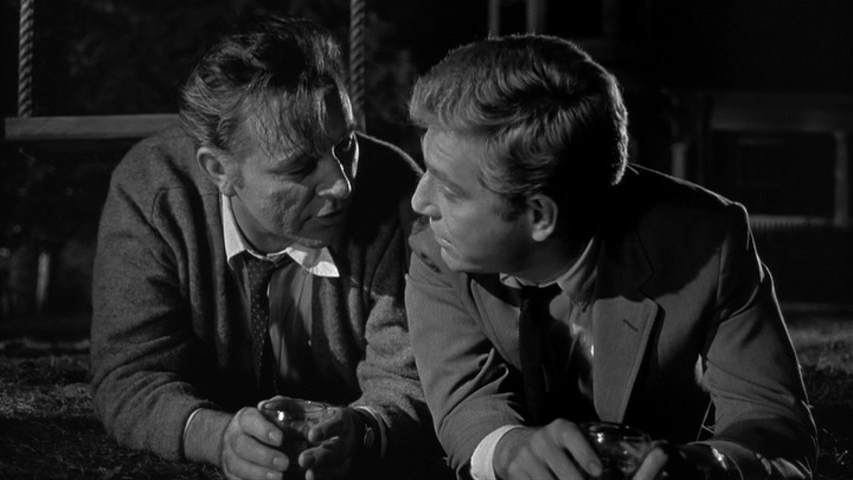
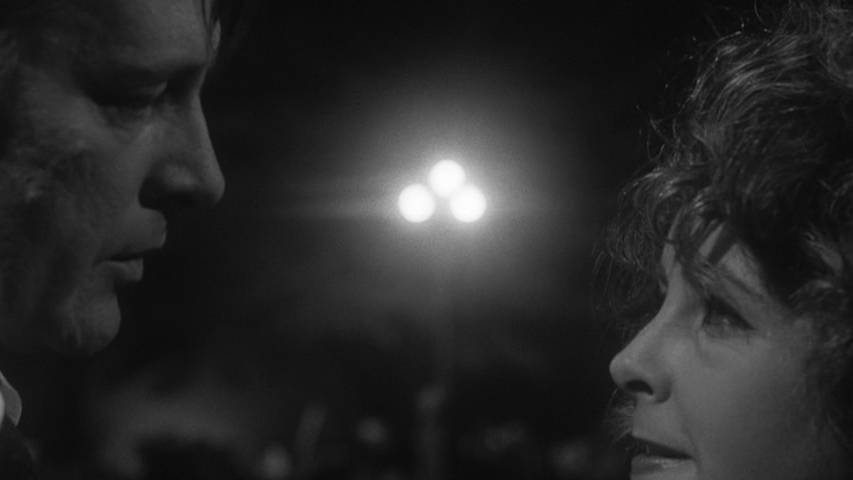
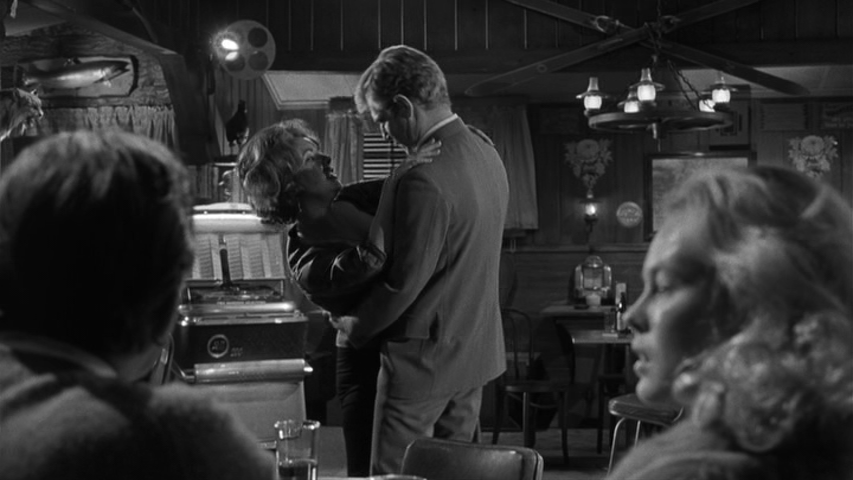
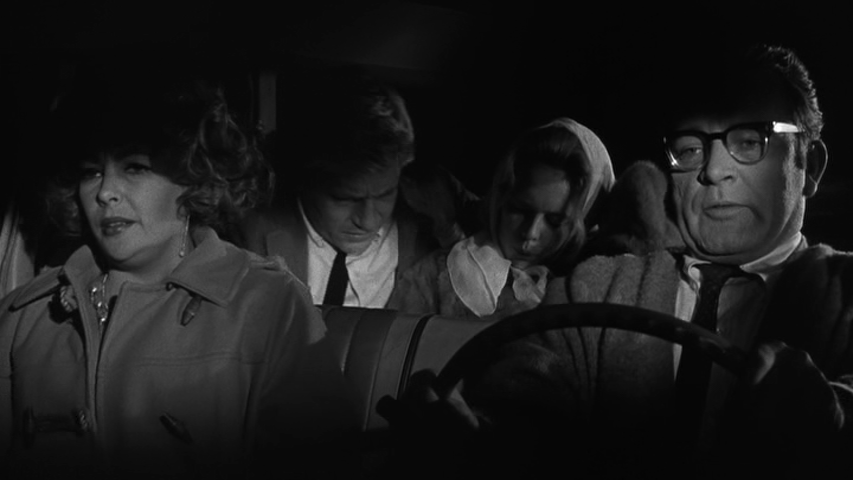
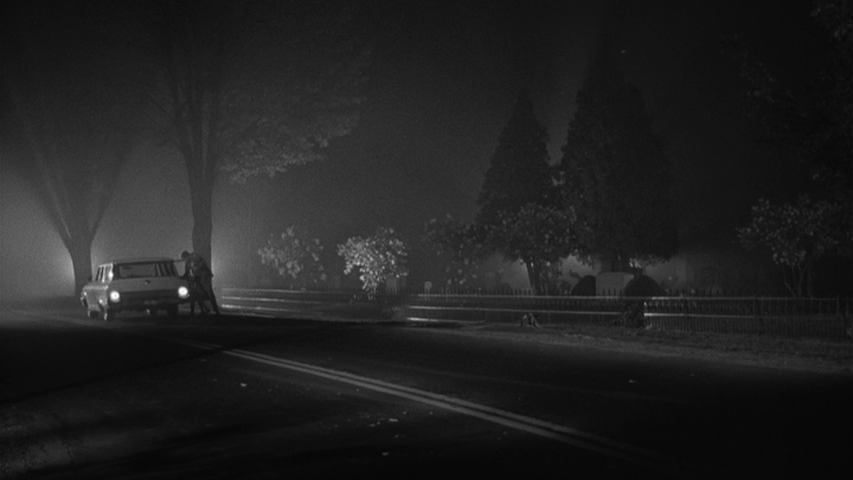
One thought on “Who’s Afraid of Virginia Woolf? (1966)”
A once-must (for the average ff), for the performances and Nichols’ direction (which is superb and speaks for itself).
For a film this famous (and somewhat infamous), it’s not one that I often hear people talk about – except people I know who appreciate camp humor. ~which is odd, though, because this isn’t a camp film (and those people would agree with that). Still, there’s something in Albee’s dark humor that appeals to camp enthusiasts (who still hold the film in high regard today).
Taylor and Burton made 10 feature films together – about half of which are hardly worth mentioning. Of the ones of note, ‘Virginia Woolf’ is their best (and I believe both of them stated that’s due to Nichols). In their films that do work for one reason or another, they reveal a fascinating range – even when the content seems to be working against them. ‘The Taming of the Shrew’ (their best content) shows them off equally as well as ‘VW’. But even ‘Boom!’ (much-loved by camp fans), as preposterous as it is, shows their considerable power together.
Though their unforgettable match in ‘VW’ makes it a must-see (and even though I have seen the film countless times – mostly with the aforementioned lovers of camp), I still can’t wholeheartedly recommend the film as a film. …I know that’s a strange remark to make. However, the more I see the film, the less I like the script. (I’m not much of an Albee fan, esp. outside of this play.)
‘VW’ is a nasty piece of work. It has terrific wordplay in it – and the types of roles that make actors salivate. (Albee said he was totally unaware that he was writing great roles for actors; a bizarre statement for a playwright, which speaks more to ego than anything else.) But if you stop and really *think* about the overall point of the work…it doesn’t have one. (At least I don’t think it does.)
Much has been written about what ‘VW’ means (and there are those who even defend it as a love story; and I think Nichols is among those). But I find the play (and film) kind of sick. …That probably fits in with what I was saying earlier about its ‘camp’ appeal: if you see the work as totally ridiculous, it goes to a separate – and entertaining – level; if you see it as a serious drama, it’s empty as hell but it still affords an opportunity to watch good actors sink their teeth into subtext. They can have a whale of a time (obviously) and that alone can be worth a watch.
~by which I’m saying, Segal and Dennis are also terrific. In fact, one of my favorite bits in the film comes from Dennis the very first time we see her (when the front door is opened to the couple). It’s very quick but look at her face: you can see Dennis getting her first look at Taylor at home…and Dennis smirks. It’s a sort of evil smirk that she seems sure will go unnoticed (but we see it). It’s as if she is thinking: “Oh my God, look at this one! What a broken-down hag.” It’s a great visual response – because it sets Dennis up as being almost a complete phony through the entire film (except for the moments when her ‘front’ is attacked).